For me, nothing soothes the soul more than that first bite of creamy, hot, perfectly-cooked mashed potatoes.
I think we have all eaten great mashed potatoes. I also believe we have all had to endure gummy or watery attempts on occasion. Well, I have some tips that will ensure that you will make perfect mashed potatoes every time.
For me, perfect mashed potatoes do not have to be silky smooth. Yes, they can have some lumps! If you do the following, even lumpy mashed potatoes will be fabulous:
- Make sure your potatoes are fresh. If they have any green color or are soft or spongy, avoid them. Potatoes should be firm to the touch and have a pure earthy smell. Also, when you are at the store buying the potatoes, choose ones that are the same size. This is important for even cooking.
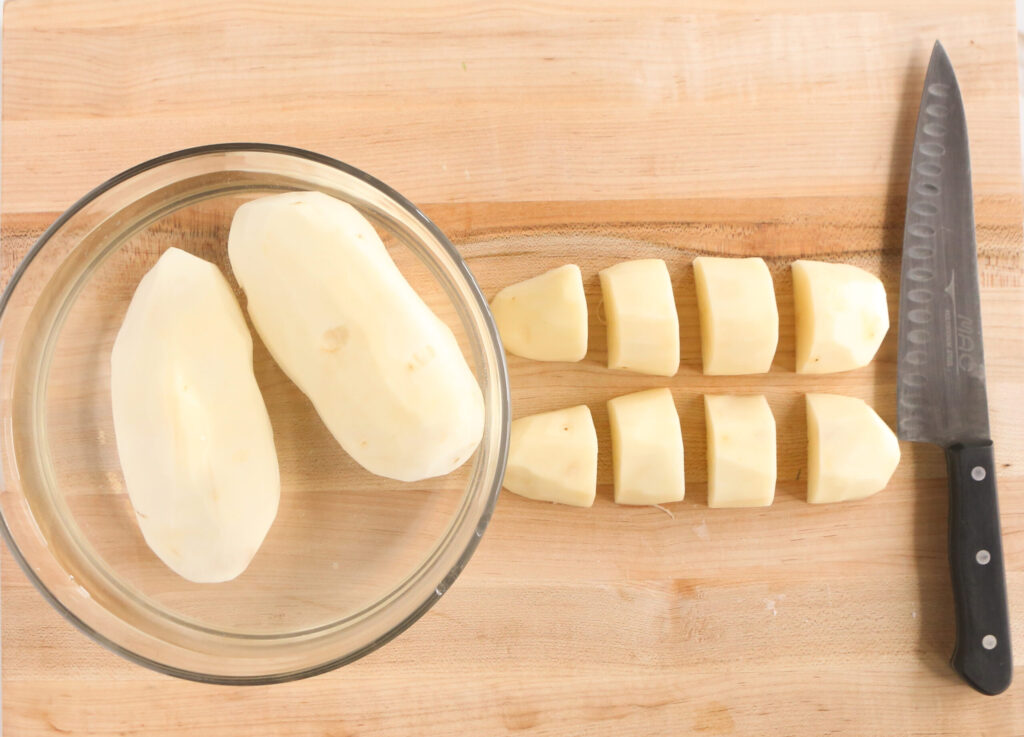
- After you peel the potatoes, cut them in half lengthways, then cut each half into three equal pieces. This will give you six equal-size pieces. This is crucial because same-size pieces will cook evenly. If the pieces are different sizes, the smaller pieces will disintegrate before the larger ones are fully cooked.
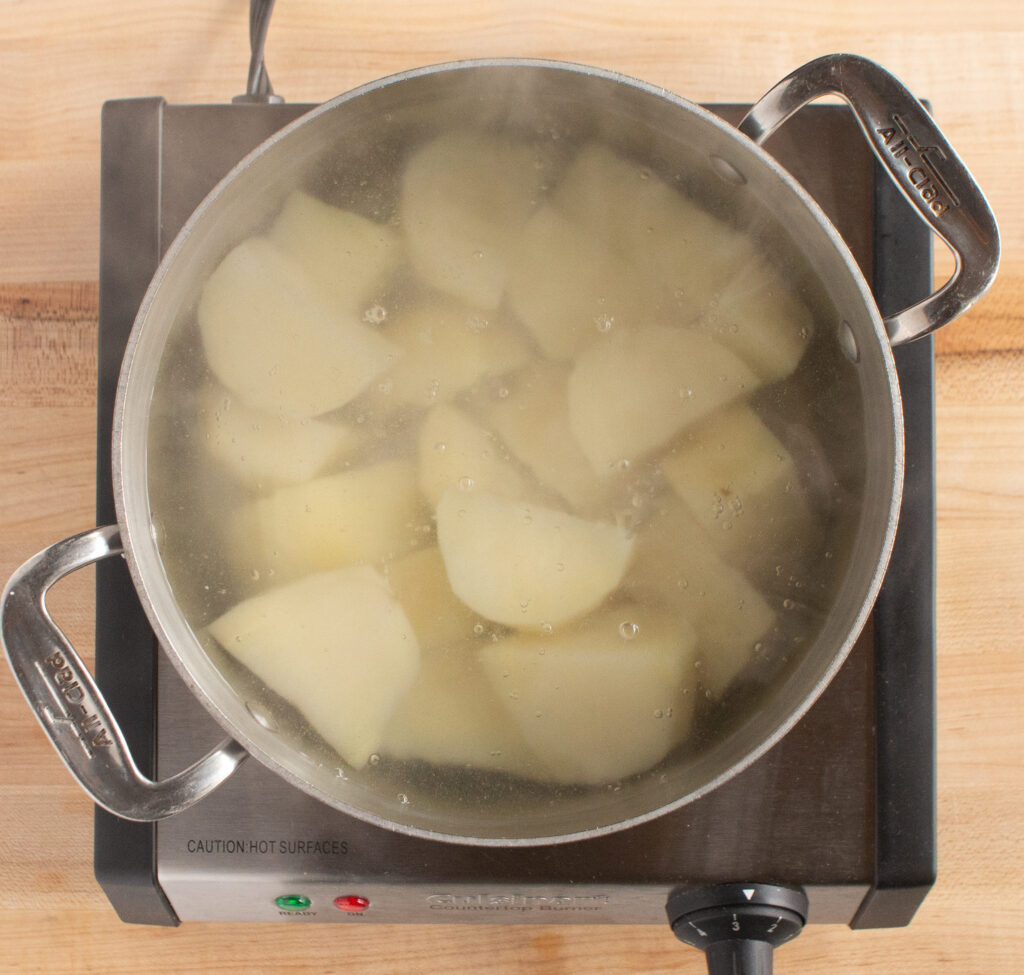
- When cooking, place the potatoes in cold water and bring to a strong simmer. Then reduce the heat so the potatoes gently simmer. You never want to boil potatoes because the potato will cook from the outside in, making the outer layer of the potato mushy while the inside is undercooked.
- Pay attention. You don’t want to overcook your potatoes. A perfectly cooked potato will allow you to pierce it all the way through with a steak knife, and the potato will slide slowly but entirely off the knife under its weight. I can’t give you a specific cooking time because how long you cook potatoes depends on their size. Visual signs that your potatoes are overcooked are:
- The water starts to go from clear to cloudy.
- The potatoes start to crack and break apart.
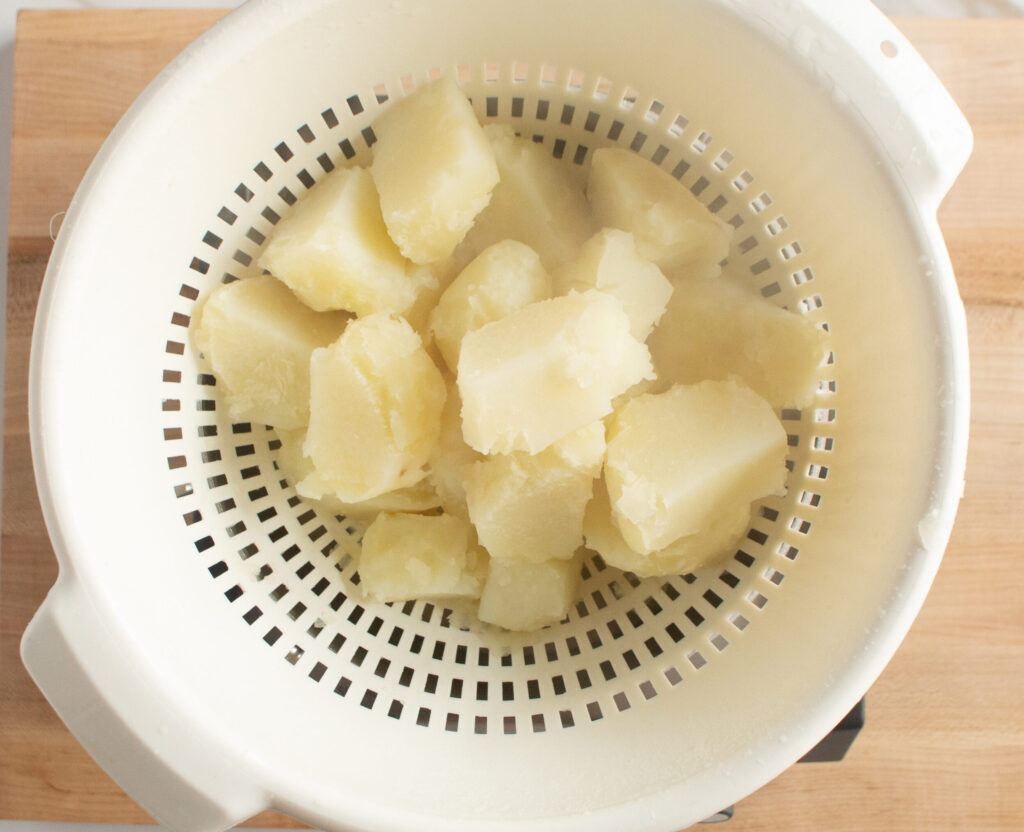
- When the potatoes finish cooking and you dump them into a colander, put the pot back on the stove to heat your cream and butter. Let the potatoes steam out in the colander for 3 minutes. Steam is water! Water does not make good mashed potatoes; it makes, well, watery mashed potatoes.
- Whatever you are using to mash your potatoes—whether it be a hand masher in the pot, a handheld or tabletop electric mixer, or a food mill (I recommend a food mill for the smoothest consistency)—mash with piping hot cream/butter just until they reach the consistency you are looking for. If you mash them in a separate bowl, say if you use the bowl of a tabletop mixer, put the finished mashed potatoes back into the pot you used to cook the potatoes and heat the cream/butter. They will keep them warm.
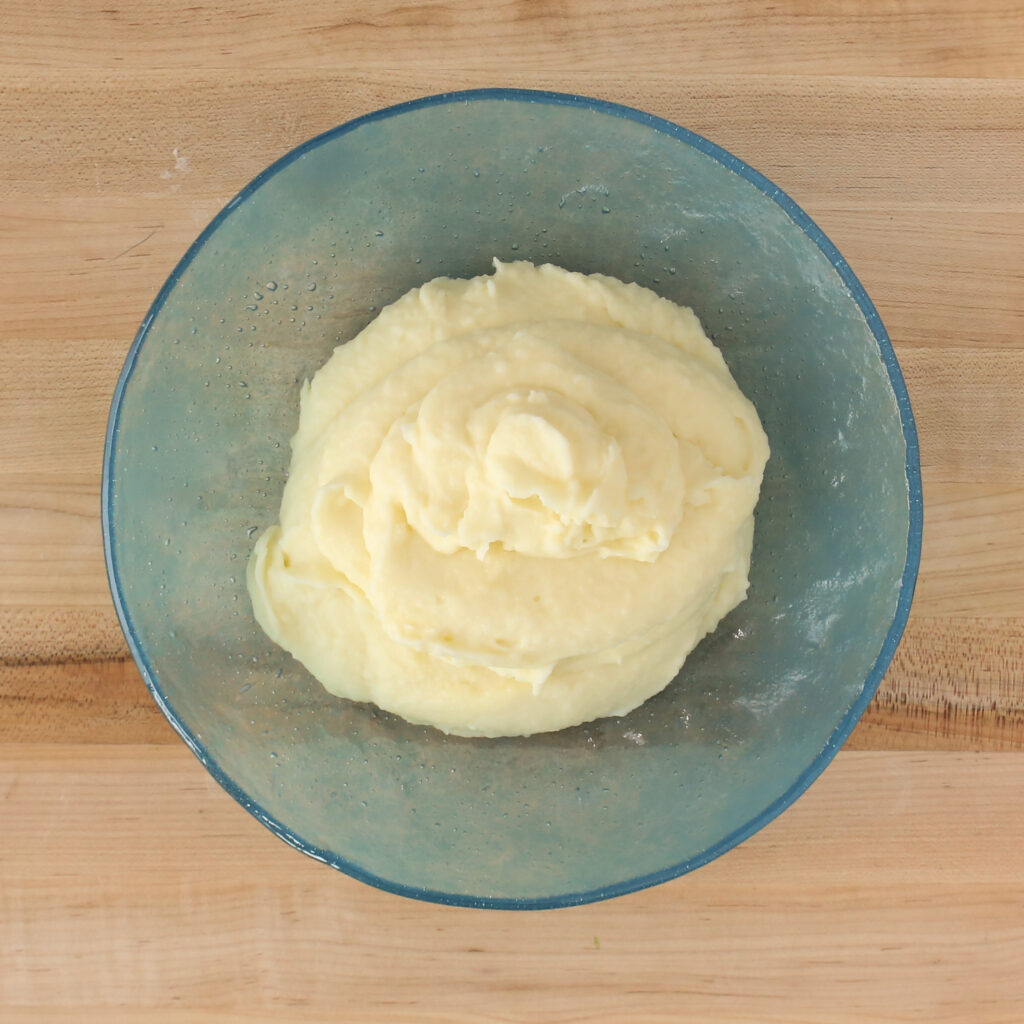
Recipe rescue!
Okay, we all mess up once in a while and overcook our potatoes. If you haven’t turned your potatoes into liquid, starchy blobs, there is a good chance they can be saved. Here’s how: Heat your oven to 275℉. Drain the potatoes well and spread them out in a single layer on a cookie sheet. Put them in the oven for 10-15 minutes. The low heat should dry them out. As you proceed to make them, add the liquid slowly because the moisture content will still be high. Go too fast, and you risk turning your mashed potatoes into potato soup.
Mashed potatoes will win over almost anyone. People always remember when you nail them. Following these simple steps will make you a hero every time!

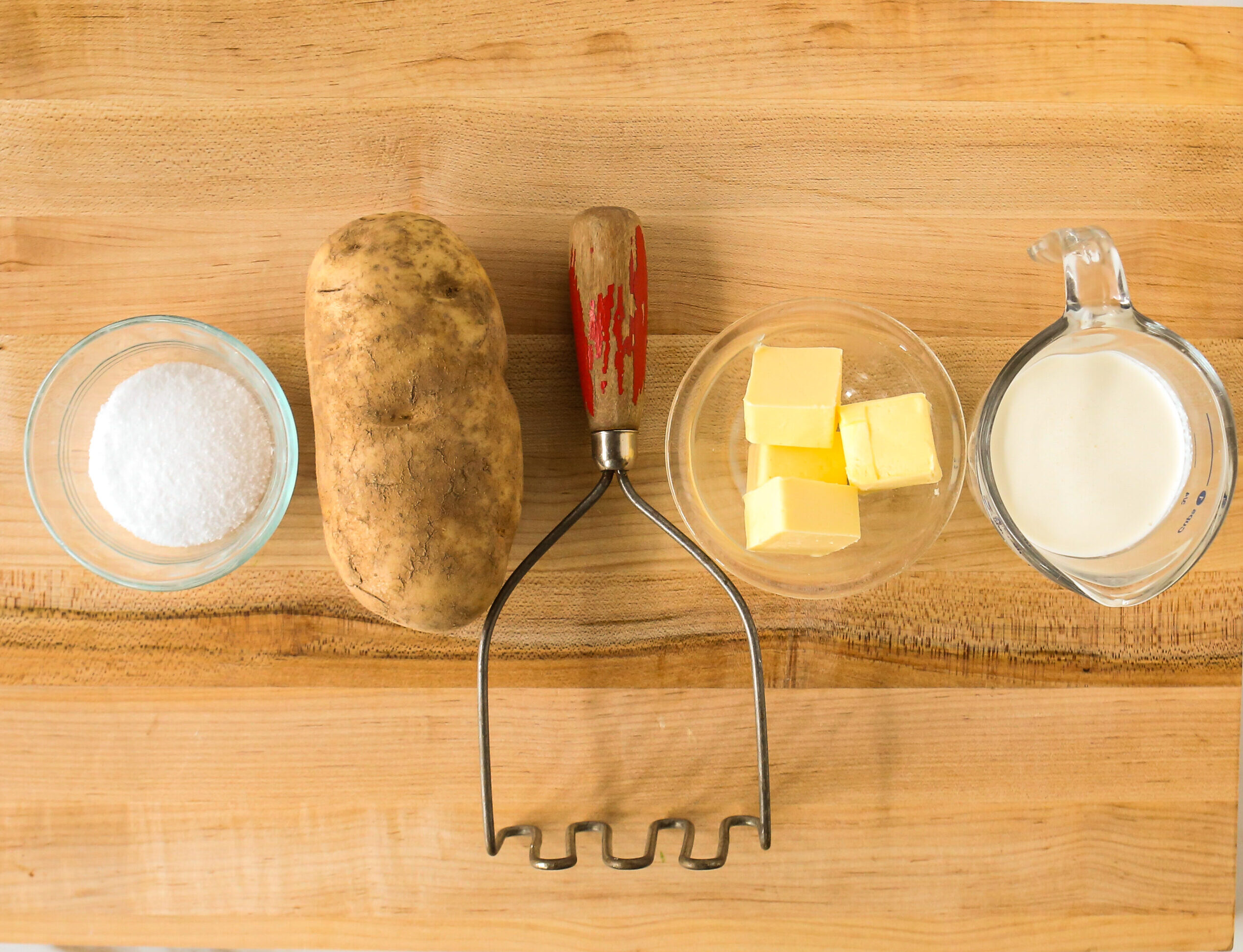
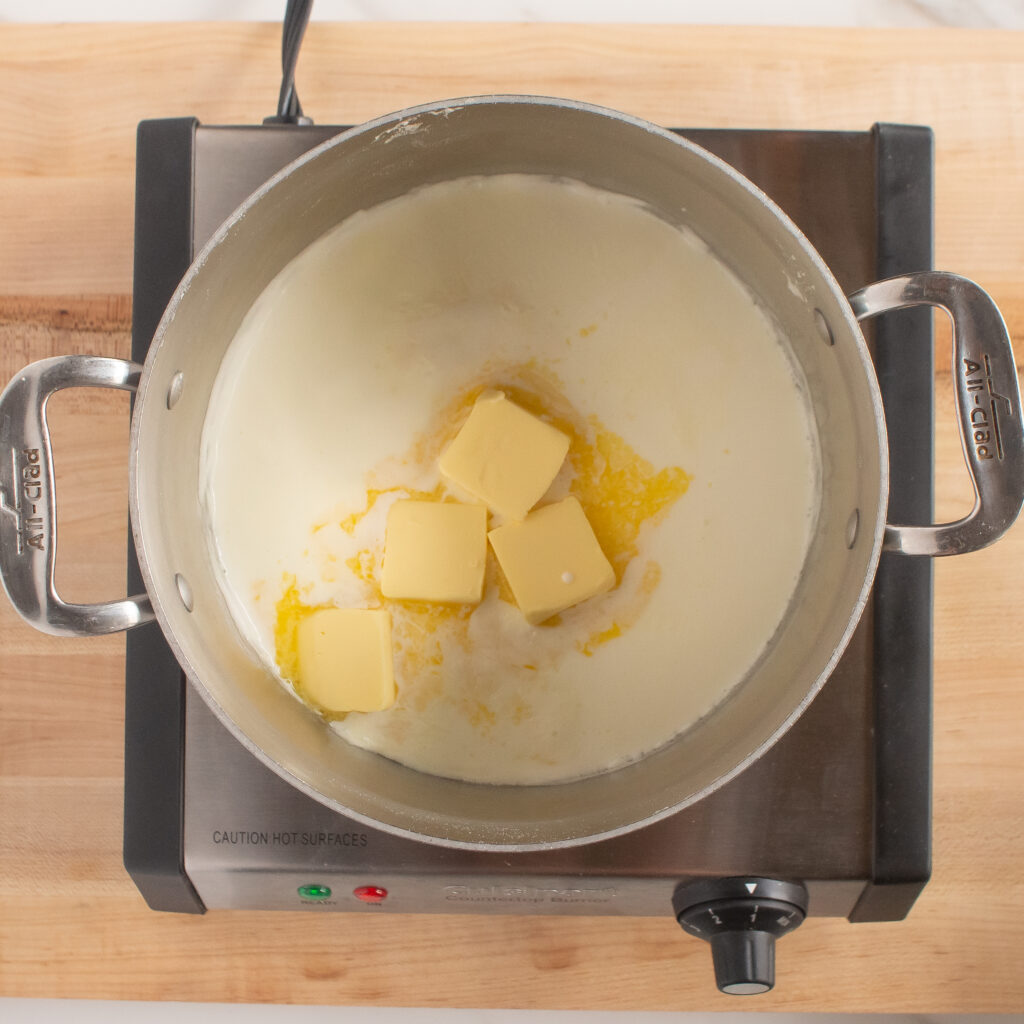
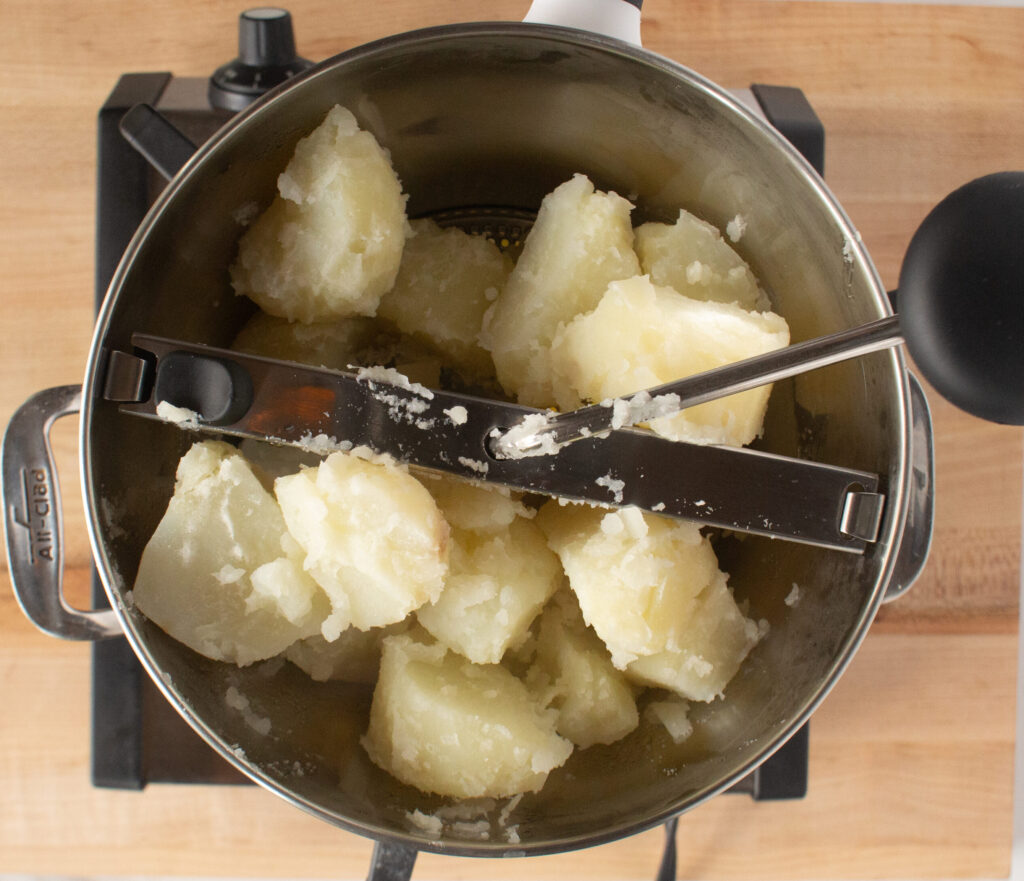
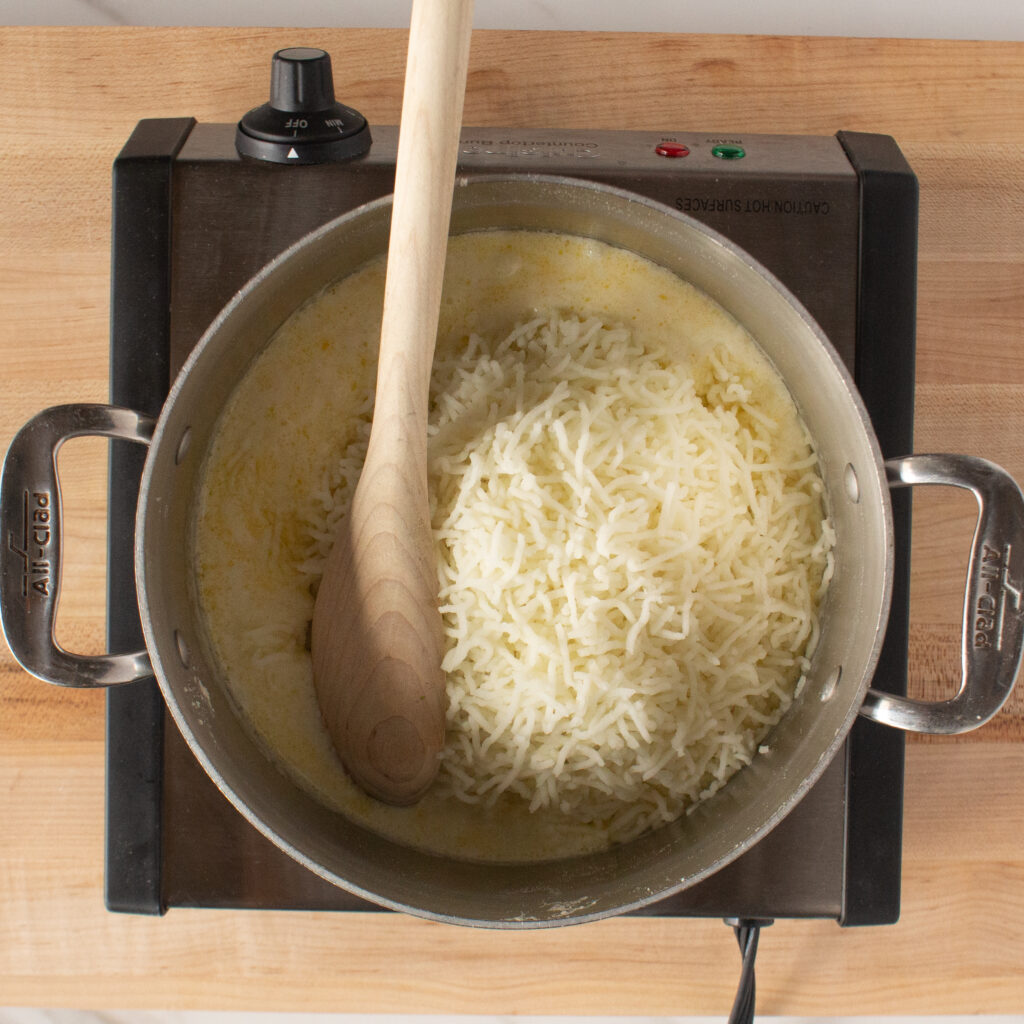

Hi Carol! Thanks for the question. The general rule for me is less starch which makes the russet the best choice for mash.
Yukon’s are for dishes where you want the potato to hold the flavor and be tender, but not fall apart, like potato gratin, but they can also be used for mash. They will be a little denser and less fluffy.
Creamer potatoes are the starchiest of common varieties and I use those for stew and soups.
Check out my potato gratin recipe!
Hi Geoff! Happy to have discovered your blog. Are you using russet potatoes here? Do you have a preferred variety for mashed?